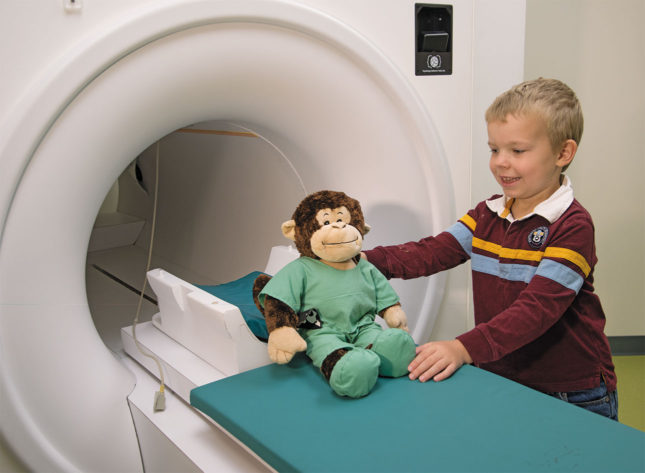
Building upon our research in earlier phases of the Preschool Depression Study, we are now conducting an imaging component of the study for eligible participants. The goal of the study is to identify structural and functional differences in the brains of healthy and depressed children and adolescents. In other words, we are looking to see if symptoms of depression are related to changes in the size and shape of brain structures, or to the connections within the brain. We attempt to measure this information by taking pictures of teen’s brains while they complete different computer games and while they rest quietly.
The overall purpose of this research is to learn more about brain development in children who demonstrate signs or symptoms of depression compared to children without these symptoms. This component of the study investigates whether the shape and size of brain areas and the way the brain works is similar or different in children who have shown depressive symptoms than children who have never had any depressive symptoms. This study is funded by the National Institutes of Health. The information that we collect may serve as a valuable resource for doctors and other clinicians and might tell us something about how depression develops.
The scanning procedure involves participants lying on a table, which is moved into a large cylinder. The child’s head and shoulders rest in a plastic tray that makes it more comfortable and easier to lie still. The magnetic resonance (MR) scanner uses a magnet to make pictures of the brain. No X-rays, radiation, or injections are involved. The MR scanner makes loud noises (comfortable ear plugs or headphones are provided), but there is no pain involved. Children participate in a specialized examination that will create pictures of the structure of the brain (anatomic MRI). They also have a functional magnetic resonance imaging scan (fMRI) that measures how the brain works when resting quietly and when playing computer games. We also ask study participants and their parent(s) to fill out a short questionnaire that helps us assess cognitive, affective and behavioral signs of depression. The amount of time required for participation in the study is approximately 2 hours. Parents or guardians are paid $75, and children receive $125 with the chance of winning an additional $17.
This study is adding significantly to our knowledge of brain development and will one day benefit children with mental health problems. The results of this research have already begun to add to our knowledge about how brain development may be different in children and adolescents with early mood symptoms. We hope that it will one day lead us to a better understanding of development of depression and how it can best be treated.